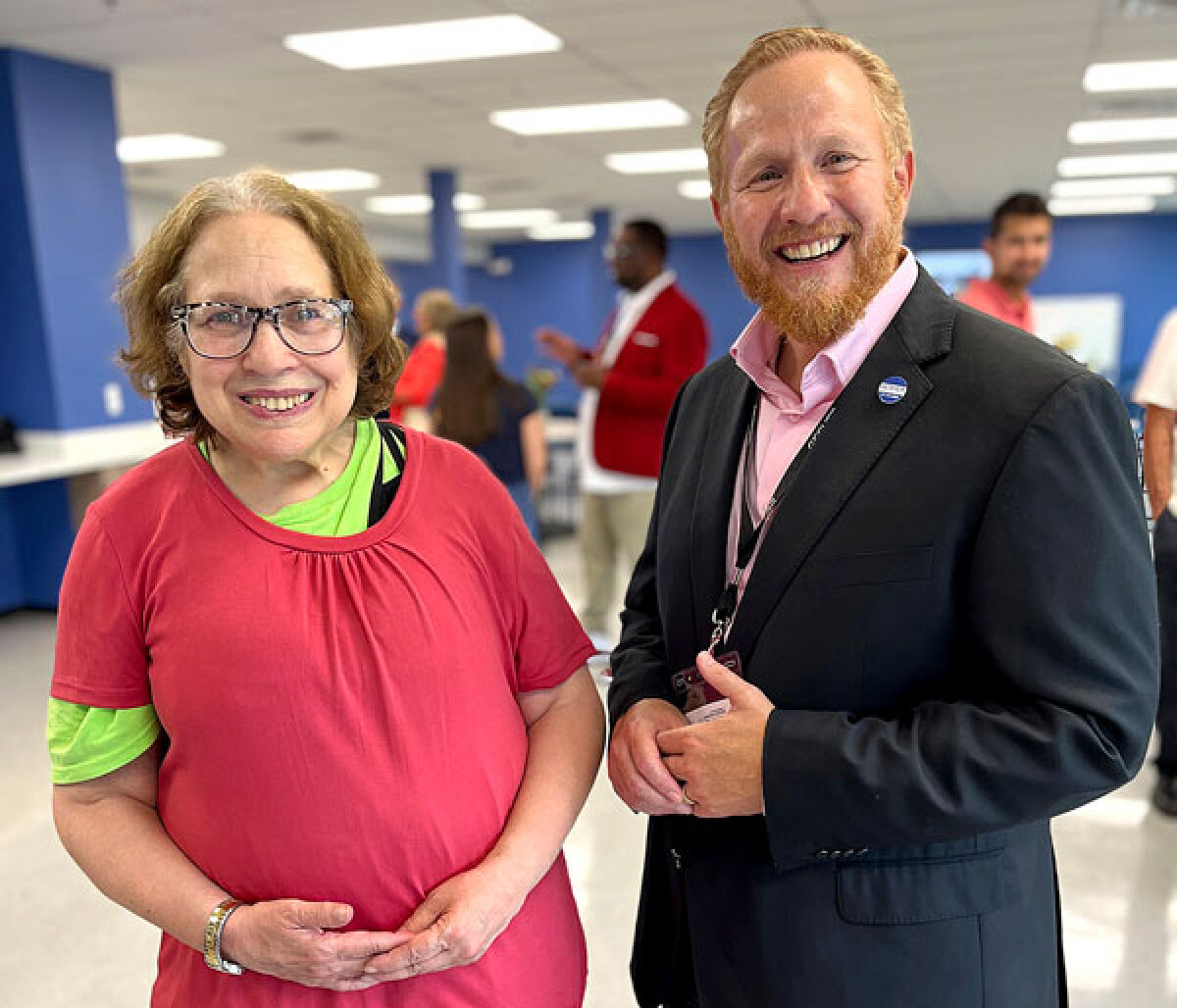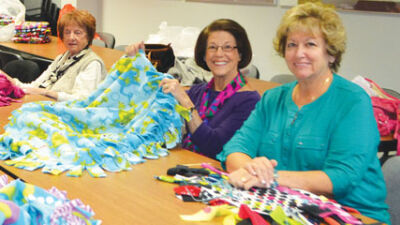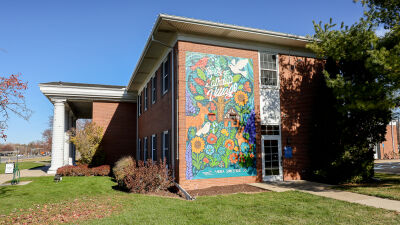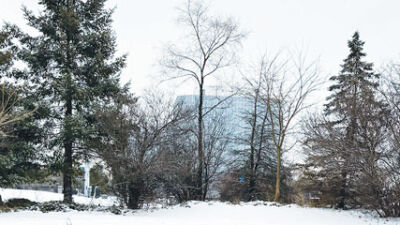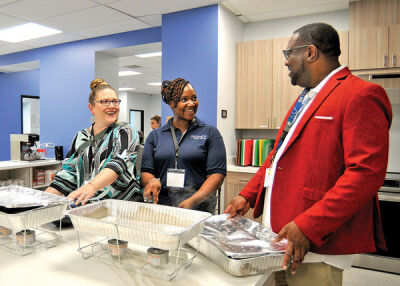
Rene Dell, Molisia Young and Clifton Phillips in the kitchen area at the new Zussman Center.
Photo by Liz Carnegie
SOUTHFIELD — After more than 10 years of operations, the Lois and Milton Zussman Center, operated by Gesher Human Services, has moved to a new facility nearly double the size of the former location.
The new 8,676-square-foot space is located within the Vanguard Center, 23800 W. 10 Mile Road, and welcomes people with mental health diagnoses to recreate, engage with others, and explore educational and vocational paths. The move happened in mid-May, but the open house for the new facility was held on Aug. 8.
Despite being a facility for individuals with mental health diagnoses, there are no mental health services at the Zussman Center.
Paul Blatt, the CEO of Gesher Human Services, emphasized the importance of the members living a normal life.
“One of the duties of the program is that there is zero actual mental health services. This is about them having the most normalized life, and one of the requirements is that we don’t have counseling on-site. All of the folks are connected to lots of services, but when they’re there, they’re just part of the community.”
Blatt added that the goal of the Zussman Center is to positively impact the lives of individuals with mental illness diagnoses by creating a safe space for them to create, learn and explore their interests in a community setting using two programs, the Clubhouse for the Common Good and Creative Expressions.
“They all accept each other as they are,” he said. “When you’re at the clubhouse, you don’t know which folks are our staff and which folks are the members. Everybody just has a role there.”
The Clubhouse for the Common Good welcomes individuals with mental health conditions such as severe depression, bipolar disorder and schizophrenia to engage in employment opportunities, educational classes, culinary and horticultural experiences, wellness and fitness opportunities, and social and cultural activities.
Clubhouse Director Mike Lancaster explained that the clubhouse model is based on shared work.
“Members come in to provide the needs of the clubhouse. Right now, our clubhouse is broken into two main units. We have culinary and horticulture, and the business unit, so members would choose which unit to participate in, depending on their interests and their existing skills, and they have ways to contribute to the clubhouse through those units,” Lancaster said.
Lancaster added that members can choose their interaction with the units each day, meaning they aren’t bound to one area of the clubhouse and are welcome to explore other pathways.
The Creative Expressions program offers programs to individuals with mental health diagnoses as well as those with intellectual or developmental disabilities and provides attendees with artistic enrichment programming, which includes photography, painting, sculpture, music, dance, singing classes and creative writing. With more than 120 club members ranging from ages 20 to 60 from all across metro Detroit, the move to a larger space allows for expansion as well as a new art studio for the Creative Expressions program.
“The clubhouse model is very much about the person and the people. So it’s about getting to know individual people who come in and about that strength of community. All of our decisions are made by committee or by consensus. So it’s a place where people get to, essentially, forget their diagnosis for a while. There are people here who I don’t even know what their diagnosis is. It’s not relevant to what we’re offering,” Lancaster said, adding that following the COVID-19 pandemic, the Zussman Center’s role in members’ lives became even more sacred.
“I think that being connected again and being able to be connected in a physical space is extremely valuable.”
He explained that because the members are at-will, and most members come in a few times a week, they always make sure to check in on members who haven’t come in to make sure that nobody is isolating themselves.
Blatt mentioned that one of the perks of moving from the former location on 12 Mile Road, between Southfield and Greenfield roads, is the addition of windows and more room at the new facility.
“It is totally spacious,” he said. “It has windows, and it is all freshly built out for them. It really adds to their day. I mean, the response I’ve gotten from all the members has been incredible. But it’s a sense of pride. It’s a sense of dignity, the way that they’re coming into this new, fresh space, and the investment made in them and their well-being.”
The Zussman Center is open 8:30 a.m.-5 p.m. Mondays-Fridays, but Blatt added that members who don’t have family to spend holidays with will often get together with staff and other members at the center.
For more information on the Zussman Center, call (248) 233-4325 or visit Gesher Human Services’ website at geshermi.org.
 Publication select ▼
Publication select ▼